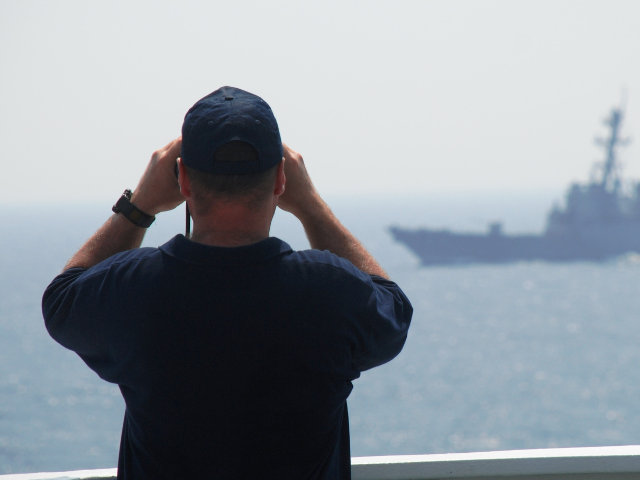Use of security contractors much reduced since peak of piracy crisis, but armed forces remains necessary precaution in some parts of world.
SHIPPING companies should still consider the use of armed guards as a protection against piracy in some parts of the world, despite a sharp decline in the problem over the last decade, experts have warned.
But the recommendation comes qualified by a number of factors, including the waters through which a vessel is set to transit, and any restrictions imposed by either the flag state or littoral states, they added.
Records on the scale of armed attacks and attempted hijackings directed at ships date back to the early 1990s, and the problem peaked around 2010 and 2011.
Somali pirates alone were at that time seizing ships at the rate of one a week, while the worldwide tally of piracy incidents topped 500 a year.
More recent years have for some time been characterised by historically low levels of attacks, although there are tentative indications of a recent uptick.

Some 91 piracy and maritime incidents have been reported in the year to date, according to Lloyd’s List Intelligence casualty data. There were 46 incidents in the second quarter alone, most comprised of robberies or attempted robberies.
This compares to a total of 142 incidents reported in 2022, a figure that is likely to be surpassed by the end of 2023.
Southeast Asia and the west coast of Africa are the most common places for maritime crime and piracy to occur.
Peru’s Callao anchorage remains a particular trouble spot, with eight incidents recorded so far this year.
Bulk carriers continue to be the most targeted vessels, while there has been a rise in incidents involving containerships, particularly in southeast Asia.
Simon Hodgkinson, global head of loss prevention at West of England P&I club, advised owners to consider carefully the level of risk.
“Our advice would be, if you get a charter or a fixture to an area you are not used to, contact us for an up-to-date outlook on the area.
“We won’t tell you what to do one way or the other, but if the outlook is tricky, we would recommend that you go to a security provider.
“If they are any good, they will tell you what level of support you need for where you want to go or what you intend to do.”
For the vast majority voyages, the risk of piracy is objectively small. At low levels of risk, it may be enough that the crew is trained in current best management practices guidelines, known in industry jargon as ‘BMP4’.
Source: Lloyds List





